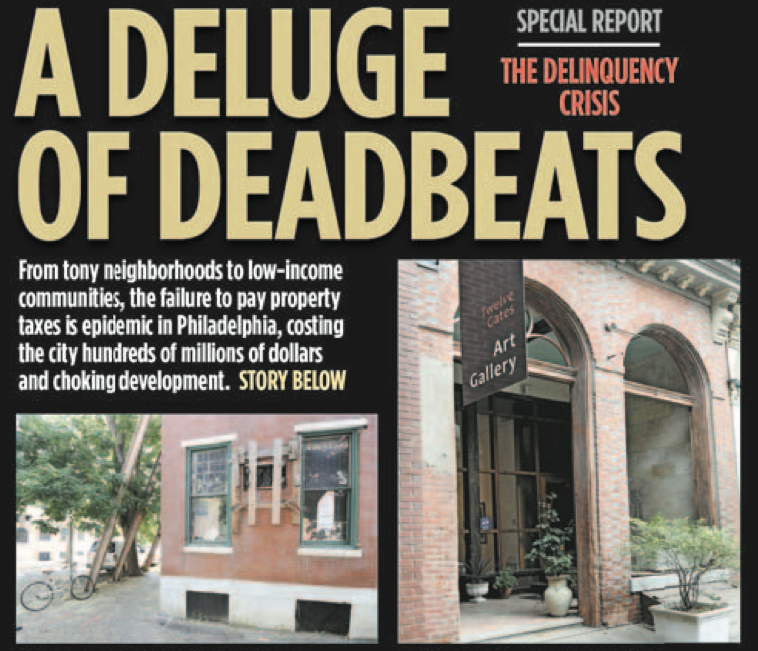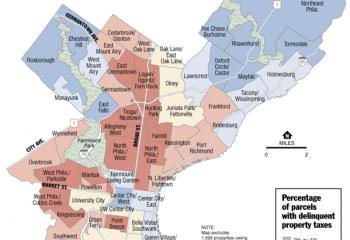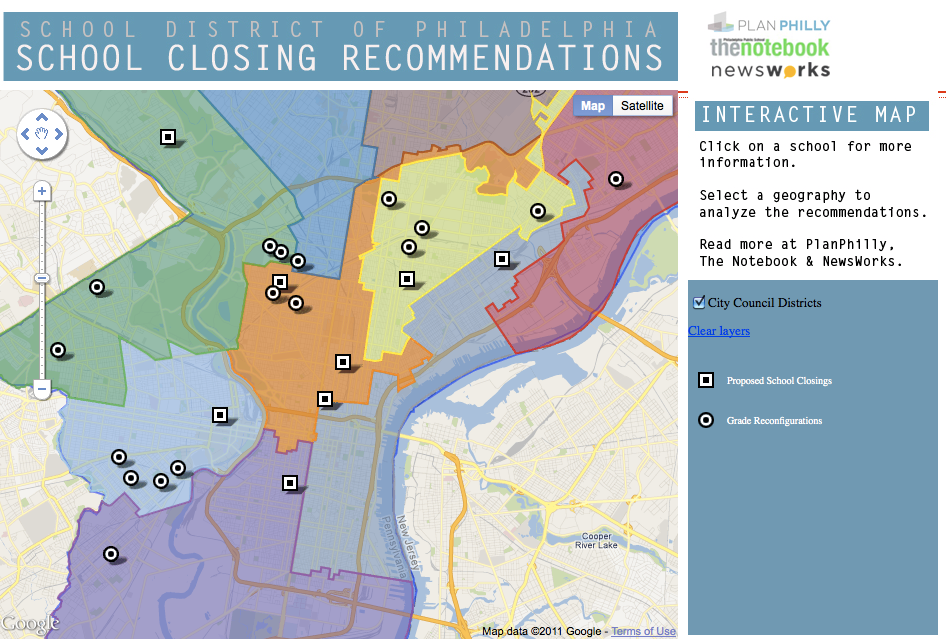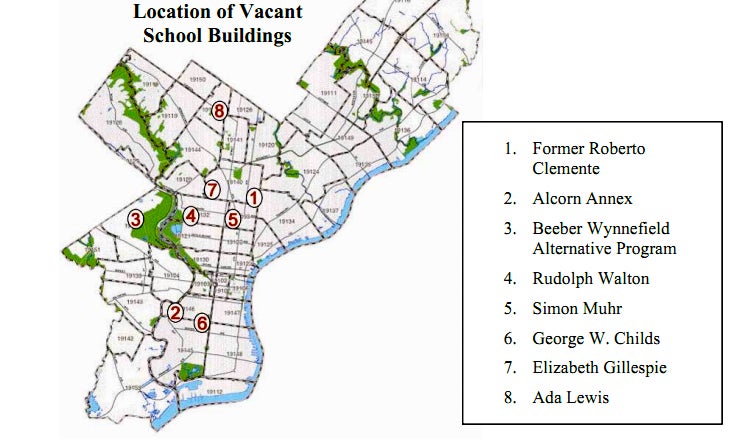Partnerships produce exclusive tax delinquency and school closing news in 2011
Tax Delinquency
In August, PlanPhilly published the findings of a months-long investigation into the City of Philadelphia’s delinquent property tax collection system.
The report, produced in partnership with the Philadelphia Inquirer, found that Philadelphia’s system is the least effective of any big city in the nation. There are over 100,000 tax delinquent properties in Philadelphia, meaning that about 19 percent of all parcels in the city are in arrears.
Although the delinquency epidemic is decades old, it has grown worse in the Nutter administration, the report found. All told, the tax delinquent properties have cost the city and cash-strapped school district $472 million in unpaid real estate taxes, penalties and interest.
The lost funds, though, pale to the blighting influence tax delinquent properties have had on the city, particularly in low income neighborhoods. The PlanPhilly and Inquirer report showed how the city’s massive backlog of delinquent properties – which are an average of 6.5 years past due – have thwarted redevelopment.
The report also included: an interactive map of all tax delinquent properties in Philadelphia; an analysis of the surprisingly high property values of the past due parcels; and the story of one large West Philadelphia property owner wrongly labeled a delinquent by the city.
Later coverage of the tax delinquency crisis revealed that the city has, in spirit if not in letter, flouted a 1992 state law directing the city to auction off tax delinquent property at sheriff sale after 12 months of delinquency.
Thanks to a grant from the William Penn Foundation, PlanPhilly will continue covering the property tax delinquency crisis in 2012.
School Closings
The School District of Philadelphia’s remarkably tumultuous year included the long-awaited release of a facilities master plan, which recommends closing nine schools.
PlanPhilly covered the story in partnership with the Notebook. PlanPhilly has focused on the political and neighborhood impact of the closings, as well as the redevelopment possibilities, while the Notebook has extensively covered the facilities planning process and its affect on education in the district.
In June, the Notebook obtained a leaked copy of the district’s internal facilities plan, which suggested that more than 20 schools were up for potential closure in 2012. The leaked plan created a political firestorm, irritating City Council members and further highlighting the lack of meaningful cooperation between the district (then led by Arlene Ackerman) and the Nutter administration.
Meanwhile, as the district continued to work on its plan, neighborhoods waited uneasily. PlanPhilly highlighted a section of West Philadelphia where three elementary schools – Penn Alexander, Lea, and Wilson – had become key players in the community’s sweeping demographic and economic transformation.
In November, the district released its plan, which was far more modest and less politically combustible than anticipated. With some notable exceptions, the district has not encountered tremendous resistance to its plan at community meetings and a City Council hearing on the closings.
So far, the district has yet to list the targeted schools for sale, and indeed, it has not even sold off eight facilities closed in earlier years, some of which have fallen into disrepair.
Contact the reporter at pkerkstra@planphilly.com
Tomorrow: Planning and the waterfront.
WHYY is your source for fact-based, in-depth journalism and information. As a nonprofit organization, we rely on financial support from readers like you. Please give today.









